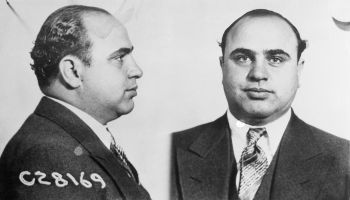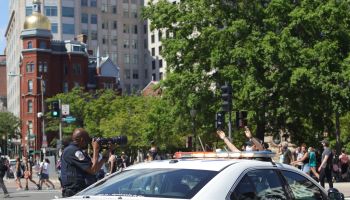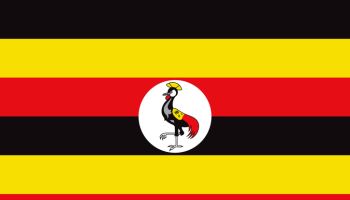VIA WASHINGTON POST:
Joseph Hairston enlisted in the Army in 1940 as an 18-year-old and still remembers the cold stares and disgusted gazes of his white commanding officers.
Hairston, 87, served in the 599th Field Artillery Battalion and became one of the Army’s first black commissioned officers. He deployed to Italy in 1944 and, like other black soldiers, ate, slept and trained separately from white soldiers. Even so, Hairston remained in the Army and went on to serve in Korea. He retired after 20 years. “I believe in my country,” Hairston said. “As bad as the past has been, there’s nowhere else I want to be.”
Hairston is a Buffalo soldier, one of thousands of African Americans who served in a segregated U.S. Army during World War II. This past weekend in Silver Spring, Hairston joined dozens of other Buffalo soldiers at the annual reunion hosted by the Washington-based 92nd Infantry Division (Buffalo) Association, founded in 1982 as a means of preserving the division’s history.
The 92nd was formed with African American soldiers during World War I and reactivated during World War II. The nickname traces to the one given black soldiers who fought in the 19th-century wars on the western frontier. Historians say the nickname of Buffalo soldier was given by the Indians to their African American adversaries because of their curly hair and as a sign of respect for their valor and prowess.
Some of the veterans at the Silver Spring reunion slowly walked around the room, canes in hand, greeting their old friends.
Others sat in their wheelchairs, telling stories. The men, some of whom traveled from Ohio, New Jersey and Pennsylvania, are well into their 80s and 90s. An 84-year-old, in this group, ranks as a “youngster.”
Time is thinning their ranks. Nearly a decade ago, a teacher told Albert O. Burke’s granddaughter that all the Buffalo soldiers were dead.
The little girl knew better.
“She took me to school with her one day to show her teacher that there were live Buffalo soldiers,” Burke, 89, recalled.
As Burke reminisced, his eyes filled with tears. He wonders, when they are all dead, whether anyone will remember the Buffalo soldiers’ sacrifice in the face of discrimination and racism.
Hairston, the officer, and his wife, Anna, have lived in the District for more than 50 years. He sits on the boards of more than a dozen nonprofit organizations and is actively involved in neighborhood issues.
A deeply religious man, he said his faith and the teachings of the Bible help him put the past behind him.
“Some people want to emphasize how bad it was, but I want to emphasize how good it is now,” Hairston said. “I’d rather not concentrate on the horror.”
With the members of the Buffalo Division getting older, the association has opened membership to anyone interested in the group’s history.
Army Lt. Col. Patricia Tucker of Pittsburgh drove five hours to attend the reunion. Although she is not directly affiliated with the men, she said her interest in African American history and the Army pulled her toward the group.
“I just fell in love with them,” she said.
Howard Fletcher, 84, helped found the association and served as its president for several years. But people like Tucker will have to carry it on.
“Black soldiers have fought in every war that the U.S. has fought,” he said. “We earned freedom. We earned our civil rights. If we hadn’t fought, there would be an argument not to give us anything. But they can’t say that.”
- Sudan: Entertainment, Food, Languages, Places To Visit + More
- South Sudan: Entertainment, Food, Languages, Places To Visit + More
- Morocco: Entertainment, Food, Languages, Places To Visit + More
- Tunisia: Entertainment, Food, Languages, Places To Visit + More
- Algeria: Entertainment, Food, Languages, Places To Visit + More














